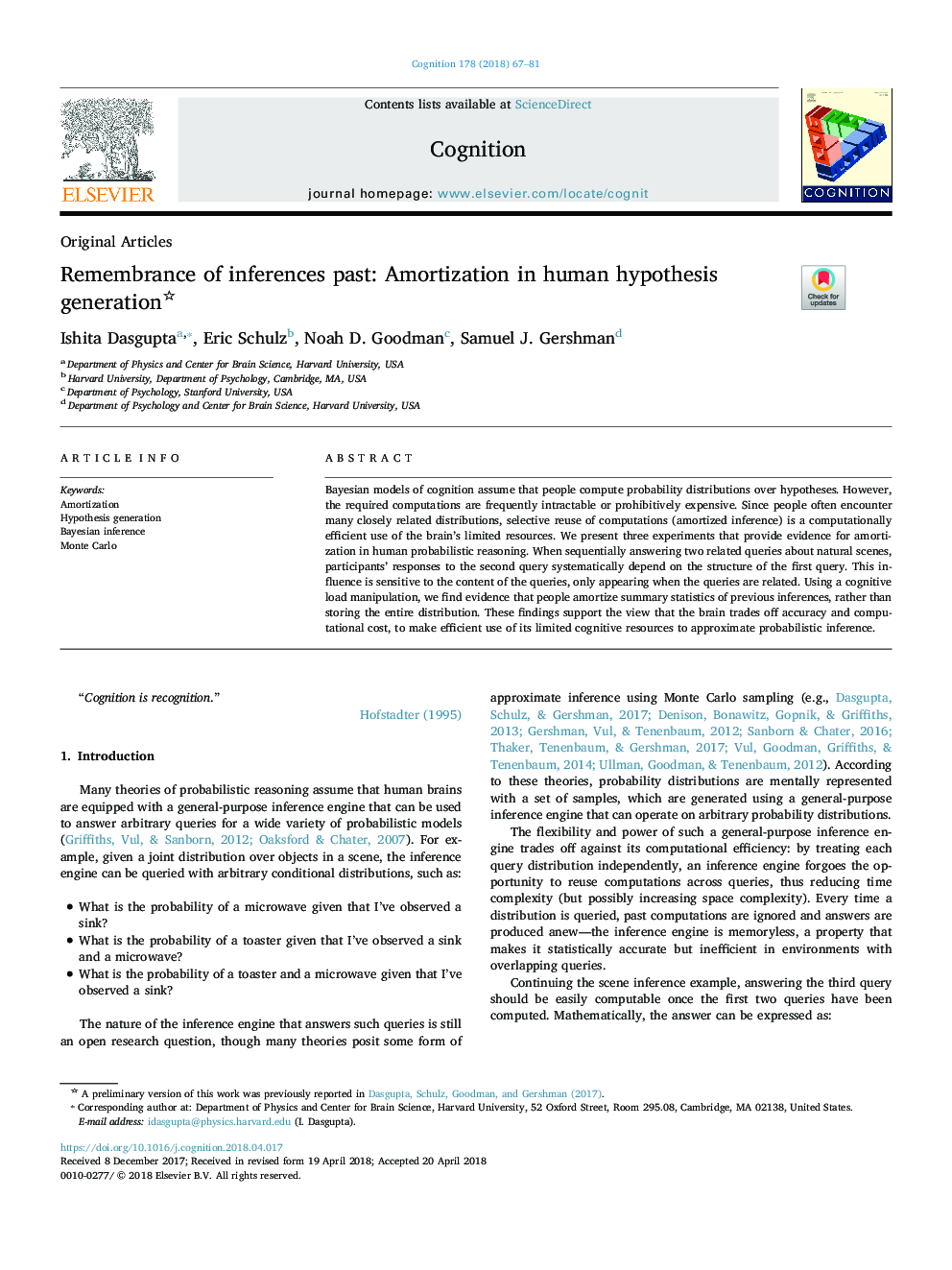| Article ID | Journal | Published Year | Pages | File Type |
|---|---|---|---|---|
| 7285225 | Cognition | 2018 | 15 Pages |
Abstract
Bayesian models of cognition assume that people compute probability distributions over hypotheses. However, the required computations are frequently intractable or prohibitively expensive. Since people often encounter many closely related distributions, selective reuse of computations (amortized inference) is a computationally efficient use of the brain's limited resources. We present three experiments that provide evidence for amortization in human probabilistic reasoning. When sequentially answering two related queries about natural scenes, participants' responses to the second query systematically depend on the structure of the first query. This influence is sensitive to the content of the queries, only appearing when the queries are related. Using a cognitive load manipulation, we find evidence that people amortize summary statistics of previous inferences, rather than storing the entire distribution. These findings support the view that the brain trades off accuracy and computational cost, to make efficient use of its limited cognitive resources to approximate probabilistic inference.
Related Topics
Life Sciences
Neuroscience
Cognitive Neuroscience
Authors
Ishita Dasgupta, Eric Schulz, Noah D. Goodman, Samuel J. Gershman,
